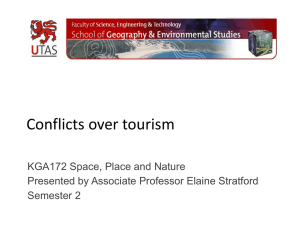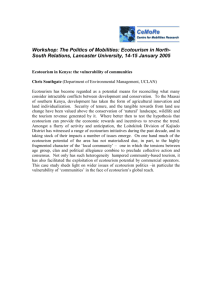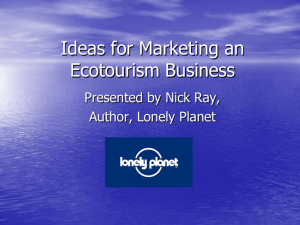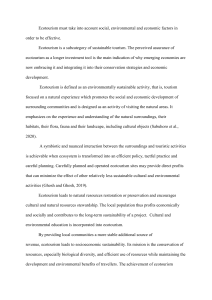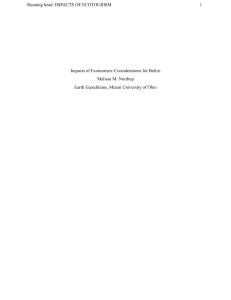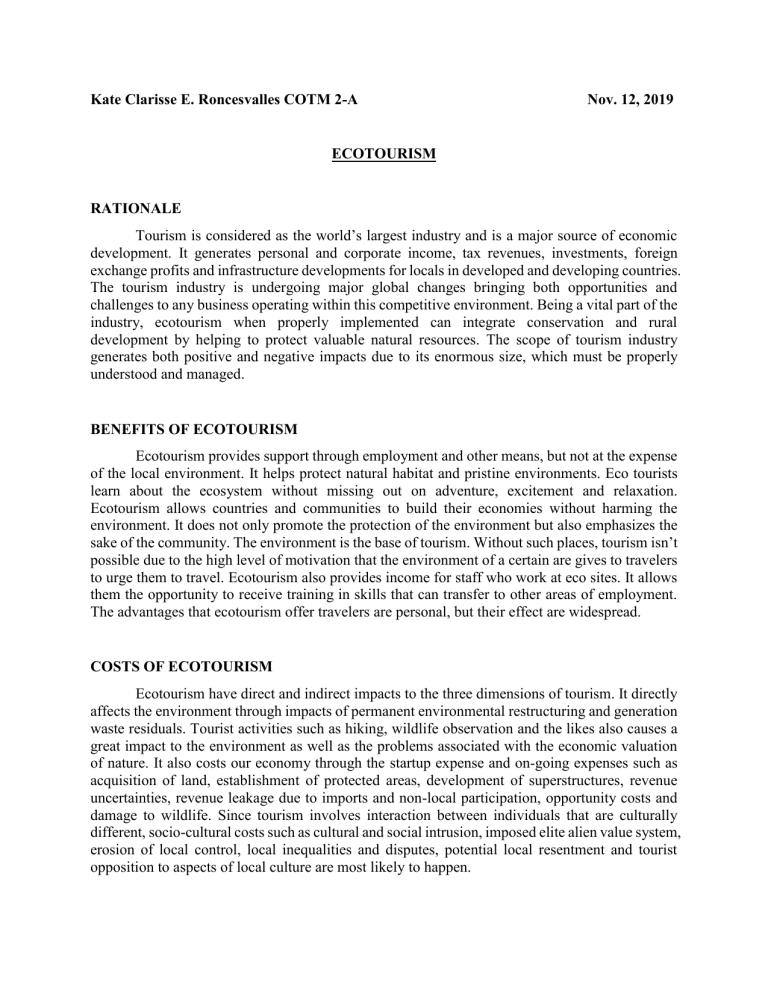
Kate Clarisse E. Roncesvalles COTM 2-A Nov. 12, 2019 ECOTOURISM RATIONALE Tourism is considered as the world’s largest industry and is a major source of economic development. It generates personal and corporate income, tax revenues, investments, foreign exchange profits and infrastructure developments for locals in developed and developing countries. The tourism industry is undergoing major global changes bringing both opportunities and challenges to any business operating within this competitive environment. Being a vital part of the industry, ecotourism when properly implemented can integrate conservation and rural development by helping to protect valuable natural resources. The scope of tourism industry generates both positive and negative impacts due to its enormous size, which must be properly understood and managed. BENEFITS OF ECOTOURISM Ecotourism provides support through employment and other means, but not at the expense of the local environment. It helps protect natural habitat and pristine environments. Eco tourists learn about the ecosystem without missing out on adventure, excitement and relaxation. Ecotourism allows countries and communities to build their economies without harming the environment. It does not only promote the protection of the environment but also emphasizes the sake of the community. The environment is the base of tourism. Without such places, tourism isn’t possible due to the high level of motivation that the environment of a certain are gives to travelers to urge them to travel. Ecotourism also provides income for staff who work at eco sites. It allows them the opportunity to receive training in skills that can transfer to other areas of employment. The advantages that ecotourism offer travelers are personal, but their effect are widespread. COSTS OF ECOTOURISM Ecotourism have direct and indirect impacts to the three dimensions of tourism. It directly affects the environment through impacts of permanent environmental restructuring and generation waste residuals. Tourist activities such as hiking, wildlife observation and the likes also causes a great impact to the environment as well as the problems associated with the economic valuation of nature. It also costs our economy through the startup expense and on-going expenses such as acquisition of land, establishment of protected areas, development of superstructures, revenue uncertainties, revenue leakage due to imports and non-local participation, opportunity costs and damage to wildlife. Since tourism involves interaction between individuals that are culturally different, socio-cultural costs such as cultural and social intrusion, imposed elite alien value system, erosion of local control, local inequalities and disputes, potential local resentment and tourist opposition to aspects of local culture are most likely to happen. DEFINITION OF ECOTOURISM According to the International Union for the Conservation of Nature (IUCN), Ecotourism is defined as environmentally responsible visiting of relatively unspoilt natural areas, in order to enjoy and appreciate nature and any accompanying cultural features – both past and present), that promotes conservation, has low negative visitor impact, and provides for beneficially active socio economic involvement for local populations.
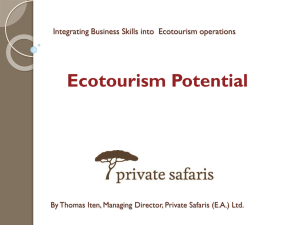
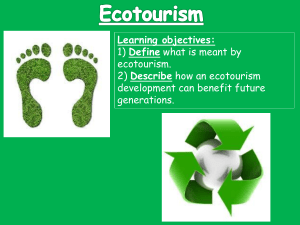
![Ecotourism_revision[1]](http://s2.studylib.net/store/data/005398532_1-116d224f2d342440647524cbb34c0a0a-300x300.png)

